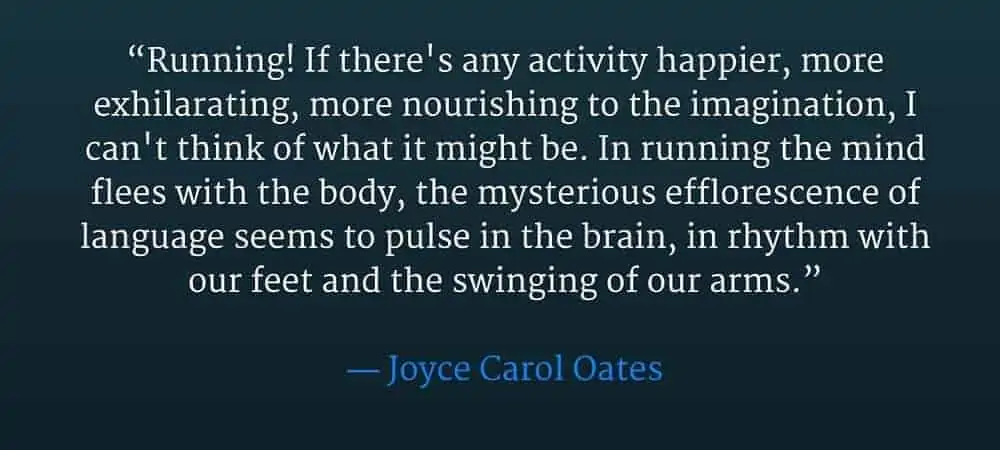How exercise can make you happy
- Physical activity, along with food choices and stress levels, can profoundly affect mood and reduce your risks of anxiety and depression. Here are five reasons why exercise can put you in better spirits.
1. Stress is less likely to lead to depression if you exercise
- It’s a sad fact, but according to the CDC data released in 2019, 4.7% of adults age 18 or older have regular feelings of depression. High-stress lifestyles tend to be a major source of depression.
- Mood matters. The increased release of stress hormones can damage or prevent cell growth in the regions of the brain that control our moods.
- Therapy helps. Psychotherapy and anti-depressants can be effective. However, about one-third of people with depression utilize them.
- See this Post: https://healthinfo.site/how-stress-affects-mental-and-physical-health/
2. Exercise is a legitimate treatment for depression
It’s official.
- The American Psychiatric Association recommends exercise as a treatment option for depression. It’s effective alone or when combined with standard treatments.
And it works.
- Randomized trials offer solid evidence that aerobic (walking, running, biking) and resistance/ strength training benefits those with depression.
Keep it up.
- The CDC recommends 150 minutes of exercise a week. We know it sounds like a lot of time, but it’s not. Just break it up into five 30-minute sessions a week.
The fog will lift.
- Depression can lift within four weeks of starting an exercise routine.
3. You can establish a workout routine that you enjoy
Take strides towards a better mood.
- Enjoy walking? Work up to 10,000 steps a day to reap the best health benefits.
Shake a leg.
- If you lose interest, try a new fitness class. Sign up for Zumba. Begin a yoga practice. Start cycling with friends.
Or save time.
- Ask your doctor if brief, high-intensity circuit training using bodyweight might work for you. No equipment is needed and you can do it anywhere.
4. Any amount of exercise can help
It’s all good.
- If you’re not meeting exercise guidelines, don’t despair. Some physical activity can still reduce depression. Dr. Todorov’s motto is “Some is good, more is better.”
Meet and greet.
- Socializing with others in virtual or in-person fitness classes can help boost your mood. Find a buddy to motivate and support you.
5. Enjoy benefits that extend beyond the brain
Have a healthier future.
- Regular physical activity can lower blood pressure, improve your cholesterol profile and help control blood sugar.
Get sturdier bones.
- Exercise strengthens your muscles, improves flexibility and balance and helps strengthens bones.
See a leaner side of yourself.
- Regular physical activity helps you reach or maintain a healthy weight and look your best.
- No medication can do so much! Exercise is a fabulous prescription for health. It’s free. It’s readily available, and if you choose something you like, it’s fun.
- Most of us know that exercise improves blood flow to the brain and increases our learning and memory abilities, but can it also make us happier?
How Does Exercise Boost Happiness?
- Studies strongly suggest that physically active people are happier, have better life satisfaction, and have higher self-esteem.
- Four main reasons why exercise makes us happier:
- Self-mastery — Exercising makes us feel more in control of our bodies and the capabilities of our bodies. In turn, this makes us feel better in control over our circumstances.
- Distraction — Exercise distracts us from negative thought patterns like worrying and overthinking, which cuts down our stress.
- Social contact — Working out with a friend or family or a group provides the chance for increased social contact, which makes us happier.
- Strength and stamina — With regular exercise, we witness the growth of our strength and stamina. This boosts our goal-achievement confidence, which spills over to other areas of our life.
People’s moods significantly increased after exercising.
— John Ratey, Neuropsychiatrist, Harvard Medical School
- Research by Colmenares & Voss (2021) showed that a 40-minute walk three times a week can significantly revive our brain’s white matter and improve memory in those over sixty years of age. Those who did not exercise were found to have their white matter frayed and shrunk.
Research demonstrates that exercise may be the most reliable happiness booster of all activities.
— Positive psychologist Sonja Lyubomirsky, the author of The How of Happiness
- Exercise isn’t just about physical health; it’s a powerful elixir for our brain chemistry. Neurotransmitters and hormones play a pivotal role in boosting our happiness during and after exercise.
- John Ratey, the world-famous exercise researcher, says, “Exercise generates the release of serotonin, norepinephrine, and dopamine in the brain. People’s mood significantly increased after exercising.”
- These are the six happiness-boosting brain chemicals released in response to exercise:
- Endorphins
- Serotonin (5-HT)
- Norepinephrine (NE)
- Dopamine (DA)
- Brain-Derived Neurotrophic Factor (BDNF)
- Leptin
1. Endorphins

- Endorphins are our natural painkillers and mood lifters. They work in two ways – make exercise more enjoyable and help reduce stress and anxiety.
- During intense exercise, endorphins flood our brains, reducing discomfort and leading to feelings of euphoria. This is often called a “post-exercise high,” which makes us feel happy and uplifted after a workout.
2. Serotonin (5-HT)
- Serotonin is often called the “feel-good” neurotransmitter because it lifts our mood.
- It’s like turning on a light in a dim room — suddenly everything seems more manageable and positive.
3. Norepinephrine (NE)
- This hormone is a kind of natural energy drink for our body.
- During exercise, serotonin helps make our focus and alertness sharper by making our heart beat faster and giving our muscles more oxygen.
- Think of it as the body’s turbo button, giving us that extra burst of energy when we’re pushing through a tough workout.
4. Dopamine (DA)
- This neurotransmitter is your personal cheerleader, urging you on towards your goals.
- When we exercise, our brains release dopamine, which motivates us and rewards us for our efforts.
- It’s the driving force behind our desire to win and achieve. Whether it’s the satisfaction of completing a run or the thrill of beating a personal best, dopamine plays a key role.
5. BDNF (Brain-Derived Neurotrophic Factor)
- BDNF is like the brain’s repair kit.
- When we exercise, our bodies produce more BDNF, helping us think clearer and remember better. It’s like giving your brain a refreshing reboot, clearing out the mental cobwebs.
- Exercise researcher MK McGovern highlights that while regular exercise can boost BDNF levels, there’s a limit to its benefits. Overexercising doesn’t equate to an exponential increase in brain health. It’s all about finding that sweet spot in your workout routine.
6. Leptin
- This study by Stephanie Fulton has shed light on leptin’s role in providing us with the famed ‘runner’s high.’
- Leptin is involved in regulating energy balance and motivating us to be active. When leptin levels are low, our brains receive a signal to engage in physical activity.
- It’s an evolutionary throwback to when we needed to be active to find food. Now, this mechanism fuels our desire to run or exercise, leading to exhilarating feelings of euphoria.
- So, exercise does more than shape our bodies; it chemically restructures our brains for happiness and well-being.

- So, if you want to feel happy now, get a short bout of exercise. In 20 minutes, you’ll find yourself happier and peppier.
- As a bonus, you get to keep the positive mood benefits of those minutes for up to twelve hours.

- In 2000, Michael Babyak and team did an exercise study — SMILE or Standard Medical Intervention & Long-term Exercise. They selected 156 people aged 50 to 77 who were diagnosed with major depressive disorder (MDD).
- They divided them into three random groups:
- Exercise Group (Group A): They were to do aerobic exercise, 45 min a day, 3 times a week.
- Medication Group (Group B): This group was to take their regular antidepressant medicines.
- Combination Group (Group C): These were to follow a combination of aerobics and antidepressants.
- The exercise group spent 30 minutes either riding a stationary bike or walking or jogging 3 times a week. The medication group was on sertraline, a common drug used to treat depression.
- After 4 months, there were improvements in all the 3 groups — all felt happier and better, and less depressed. No surprises there.
- After 10 months, however, reports started coming in that were unexpected.
- 38% of those on only antidepressants went back into depression.
- 31% of those on combination therapy went back into depression.
- 9% of those who only exercised had relapsed into depression.
-
So, does exercise cure depression?
- Positive psychologist Tal Ben-Shahar answers that in his book Even Happier:
- Exercise officially makes you happier, but the secret to finding optimal happiness from exercise is:
- 20 minutes per day, 5 days a week.
A Mega Research On Exercise And Happiness
- This was a 2018 study involving 1.2 million American adults.
- The researchers wanted to find any clear relation between exercise and mental health. People were asked to answer this:
- How many times have you felt mentally unwell in the past 30 days, for example, due to stress, depression, or emotional problems?
The findings were nothing short of a surprise:
- People who exercised had 43.2% fewer days of poor mental health in the past month than those who did not exercise. In other words, those who exercised reported feeling bad for 35 days a year, which was 18 days less than the non-exercising participants.
- Those who played in groups or teams had better positive effects on their mental health.
- The study also found that physical activity contributes to better mental well-being only when it includes between 3 and 5 sessions per week, each lasting 30 to 60 minutes — not more.
- Kevin Gilliland, PsyD, Executive Director of Innovation360 and Ironman triathlete, cautions that exercise is not a happiness cure-all. “It can and should help our mood and anxiety,” he says, “but we may still need to utilize other beneficial things like medicine, counseling, spirituality, and encouraging communities.”
- In addition to boosting mood, here are six more health benefits from exercising that may put a smile on your face:
Exercise helps you live longer.
- Living longer may lead to greater happiness, and many studies suggest a link between exercise and longevity. For example, researchers have found that exercise lowers the risk of osteoporosis, prevents the development of certain cancers, and increases overall longevity due to improved cardiovascular health in the elderly.
- And what’s not to like about living longer? After all, a longer life offers you more time to accomplish goals and projects, including new careers. Also, you’ll get to spend more time with loved ones, especially children and grandchildren.
Exercise improves memory in old age.
- Remember your first kiss? The time you knocked it out of the park on a work project? The compliment you got on making that terrific meal? Positive memories make us happier and exercise has been shown to promote sharper memory, specifically in older adults who may be at risk of memory loss.
- For example, a 2019 study showed that aerobic exercise improved executive functioning, i.e. working memory, flexible thinking, and self-control in adults older than 55 who were at risk for cognitive decline.
Exercise motivates healthier eating.
- While research shows that eating healthier makes you happier, it also makes sense: You probably feel happy that you’re treating your body well, and your body feels and works better when you give it healthier food and beverages.
- Sometimes it’s hard to get motivated to eat healthy, though. What can give you that extra push? You guessed it: exercise. Michael Knudsen, MD, an orthopedic surgeon with M Health Fairview and assistant professor at the University of Minnesota Medical School says, “When patients start incorporating healthy habits like exercise into their lives, they tend to be more conscious in other areas, like eating healthier.”
- Research published in 2015, showed that starting or continuing to exercise led to increased fruit and vegetable consumption in both men and women. Another 2019 study found similar results where participants in a 15-week exercise program who were previously sedentary were more likely to voluntarily choose healthier foods.
Exercise keeps your immune system strong.
- The stronger your immune system, the less likely you are to get sick. Since we’re generally happier when we’re not sick, it’s probably safe to say that boosting your immune system can make you happier — and exercise can help with that. But you’ll need to make it a habit.
- A 2018 review found evidence to suggest that regular exercise — when done regularly for at least 45 minutes at a time — may prevent your immune system from weakening as you age.
Exercise improves sleep.
- If you’ve tossed and turned all night, you’re probably familiar with the grumpiness that follows the next day. Several studies, including a 2010 study, showed that aerobic exercise improved sleep and quality of life. Not surprisingly, research shows that getting a good night’s sleep contributes to improved mood and a sense of well-being.
Exercise boosts energy.
- It’s hard to feel happy when you’re exhausted. But when you’re feeling energetic, you may get excited about even mundane tasks like cleaning out your closet. Research has shown that physically active people have more energy and less fatigue.
- Knudsen agrees, “When my patients, especially those that were sedentary, engage in more exercise, they have a little more pep in their step and feel more energized throughout the day.”
Final Words
- Moving is medicine and exercise makes us happier and also protects us from depression.
Takeaway
- Exercise provides so many benefits that can help us live happier lives overall. For example, it can boost your mood, help you live longer, and improve your memory, among other benefits.
- It has a powerful effect on your brain, helping it function better in many ways, especially to increase mood and memory.
- And the best part? You can start receiving some of those benefits with as little as 10 minutes of exercise a day. That’s enough to put a smile on anyone’s face.


Your article helped me a lot, is there any more related content? Thanks!
Thank you for your sharing. I am worried that I lack creative ideas. It is your article that makes me full of hope. Thank you. But, I have a question, can you help me?
I don’t think the title of your article matches the content lol. Just kidding, mainly because I had some doubts after reading the article.
Can you be more specific about the content of your article? After reading it, I still have some doubts. Hope you can help me.
Thanks for sharing. I read many of your blog posts, cool, your blog is very good.
Thank you for your sharing. I am worried that I lack creative ideas. It is your article that makes me full of hope. Thank you. But, I have a question, can you help me?
Your article helped me a lot, is there any more related content? Thanks!
Thanks for sharing. I read many of your blog posts, cool, your blog is very good.
Can you be more specific about the content of your article? After reading it, I still have some doubts. Hope you can help me.
I don’t think the title of your article matches the content lol. Just kidding, mainly because I had some doubts after reading the article.
Thank you, your article surprised me, there is such an excellent point of view. Thank you for sharing, I learned a lot.
Your point of view caught my eye and was very interesting. Thanks. I have a question for you.
Your point of view caught my eye and was very interesting. Thanks. I have a question for you.
Your point of view caught my eye and was very interesting. Thanks. I have a question for you.
Thank you for your sharing. I am worried that I lack creative ideas. It is your article that makes me full of hope. Thank you. But, I have a question, can you help me?
Your point of view caught my eye and was very interesting. Thanks. I have a question for you.
Can you be more specific about the content of your article? After reading it, I still have some doubts. Hope you can help me.
Thanks for sharing. I read many of your blog posts, cool, your blog is very good.
Your article helped me a lot, is there any more related content? Thanks!
Thank you for your sharing. I am worried that I lack creative ideas. It is your article that makes me full of hope. Thank you. But, I have a question, can you help me?
Your point of view caught my eye and was very interesting. Thanks. I have a question for you.
Thanks for sharing. I read many of your blog posts, cool, your blog is very good.
Thank you for your sharing. I am worried that I lack creative ideas. It is your article that makes me full of hope. Thank you. But, I have a question, can you help me?
Your article helped me a lot, is there any more related content? Thanks!
Your point of view caught my eye and was very interesting. Thanks. I have a question for you.
Thank you for your sharing. I am worried that I lack creative ideas. It is your article that makes me full of hope. Thank you. But, I have a question, can you help me?
Your article helped me a lot, is there any more related content? Thanks!
Thank you for your sharing. I am worried that I lack creative ideas. It is your article that makes me full of hope. Thank you. But, I have a question, can you help me?
Thank you for your sharing. I am worried that I lack creative ideas. It is your article that makes me full of hope. Thank you. But, I have a question, can you help me?
Can you be more specific about the content of your article? After reading it, I still have some doubts. Hope you can help me.
Thanks for sharing. I read many of your blog posts, cool, your blog is very good.
Can you be more specific about the content of your article? After reading it, I still have some doubts. Hope you can help me.
I don’t think the title of your article matches the content lol. Just kidding, mainly because I had some doubts after reading the article.
Thanks for sharing. I read many of your blog posts, cool, your blog is very good.
Can you be more specific about the content of your article? After reading it, I still have some doubts. Hope you can help me.
I don’t think the title of your article matches the content lol. Just kidding, mainly because I had some doubts after reading the article.